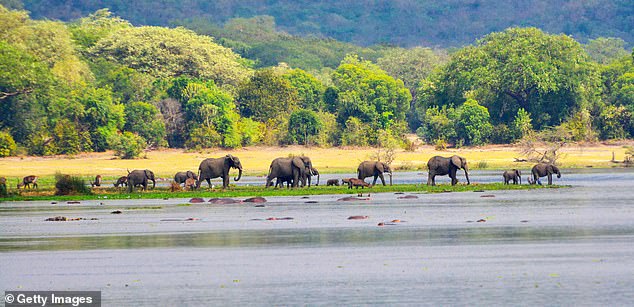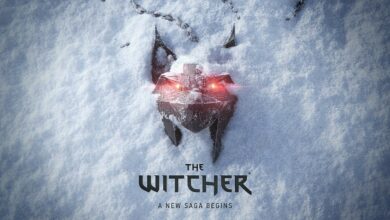The ‘Big Five’ and snorkeling-loving elephants: Inside East Africa’s Murchison Falls Game Reserve, where safaris are ‘cheaper’ but still teeming with wildlife

Our guide on the riverboat looks at me seriously. “Did you know that hippos are actually really bad swimmers, but elephants are really good swimmers?” asks Clinton.
We are on a small boat in the Murchison Falls Game Reserve on the Victoria Nile in northwestern Uganda. There are hippo eyes all around our boat, their crinkled eyebrows poking out of the water.
“They look like they’re swimming, but their feet are on the muddy ground,” he says.
At that moment, my fellow travelers gasp. In the middle of the river, a family of elephants is crossing. They are standing up to their bellies in the water, their feet on the shallow bottom. Two babies have their trunks wrapped tightly around their mother’s tails for safety.
The big bull flaps his ears as the boat approaches. At the back of the line are the teenagers. They’re having a great time, hanging around like overgrown Labradors. They suck in water and then spray it everywhere. One of them dives under and rolls over. Another dives like a submarine, using his trunk as a snorkel. “See how they swim?” Clinton says.

Alice Morrison goes on safari in Murchison Falls Park in Uganda (above) and says a ‘cheap safari costs about £200 a day – 30 per cent less than in Kenya’. She sees elephants, hippos, lions and more on her trip
Uganda is a small, landlocked country in East Africa. It shares borders with Kenya and Tanzania and is full of wildlife, but the price of safaris is relatively lower. A good value safari costs around £200 per day – 30 percent less than in Kenya.
And the advantage is that you are not competing with the crowd. You do not have to share your lion with 20 other vehicles fighting for the best camera positions. If you have the budget, there is also the option of visiting gorillas in the Bwindi Impenetrable Forest – a permit in Uganda costs half of a permit in Rwanda.
Another plus is the accommodation. There are many authentic options, built with techniques in harmony with the environment.
English is the common language and the country is relatively stable after the civil wars of the 1970s and 1980s. The current president, Yoweri Museveni, has been in power for almost 40 years and has come under fire for human rights abuses. He helped overthrow Idi Amin and has held office since 1986, although he has faced increasing calls to step down.

Alice sees ‘a small herd of giraffes’ at Murchison Falls with the ‘advantage of not competing with the crowd and fighting for the best camera positions’

While in Uganda’s largest game park, Alice spots a ‘grumpy herd of water buffalo – the most dangerous animal in the bush’
Murchison Falls is the largest game park in the country. Ibra, my driver, and I set off at first light for an adventure on land.
“Look,” Ibra says. Ahead of us is a small herd of giraffes, walking with that peculiar, swaying grace. One stretches his neck and nibbles a treat from a thorn tree. We are so close that I can see the individual chin hairs of the large male.
‘Giraffes have the same number of neck vertebrae as humans – seven. But theirs can be up to 25 centimetres long,’ says Ibra. One for the pub quiz. As we drive on, four different species of antelope play tag with our jeep. A sullen group of water buffalo – the most dangerous animal in the bush – watches us from a waterhole.
We have the park to ourselves, but then we see a small group of vans. A lion moves slowly through the grass, coming in and out of sight.
It’s an adrenaline rush.
Later I see two pairs of hairy ears in the bushes and then a hyena comes out and gallops hundreds of meters straight ahead of us. ‘I’ve never seen that before,’ Ibra admits.

‘My favourite food is the Rolex (pictured). It’s an omelette wrapped in a chapatti and cooked fresh in front of you on an iron griddle at little roadside stalls,’ says Alice (stock image)

‘I want to relax for the last few days, so I’m heading to Lake Bunyonyi (pictured above), which is known for its tranquility and bird watching opportunities,’ Alice notes
Uganda is not just about safari. There are good restaurants and a busy nightlife in the cities. Music and dancing are an important part of life and Ugandans twerk at every opportunity.
Women wear brightly colored wraparound skirts and headscarves and dominate the open-air markets, sitting in front of piles of mangoes, pineapples and large avocados.
Don’t try Ugandan food if you are on a protein or keto diet. It is mostly carbs and the portions are huge.
My favorite food is the Rolex. It is an omelette wrapped in a chapatti and cooked fresh in front of you on an iron griddle at small roadside stalls.
After the excitement of seeing the Big Five, I want to relax for the last few days, so I head to Lake Bunyonyi, known for its tranquility and bird watching. I am picked up by a boat and sailed across the water to my lodge on one of the 29 islands. Blue kingfishers and royal crested cranes fly over the boat.
I am billeted in a hut with a thatched roof and no door. The shower is outside and is heated by the sun.
My last day is spent watching a family of kingfishers dart through the shallows as royal-crested cranes fly by, and I reminisce about the mischievous teenage elephants snorkeling down the Nile.




